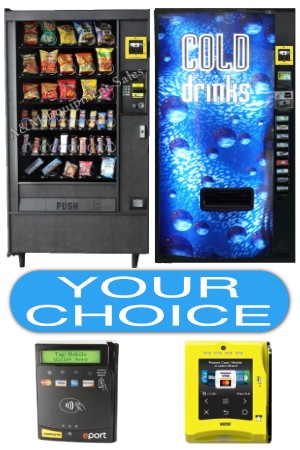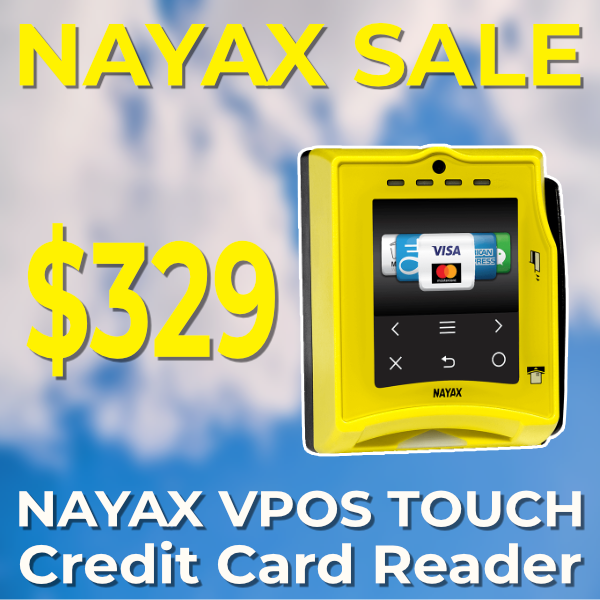Vending Locators Paying for locations in the vending machine business falls under three categories:
- Placement fees
- Commissions
- Locating services
Vending Locators Snack and soda vending requires a marketing and sales effort for account placement. The difference between marketing and sales is that marketing determines who your customer is, how much they are expected to buy, how they will get the product, and all other aspects of your business that induce customers to purchase your products.
Sales is the act of getting the business: closing the deal, getting the money. The sales function is applied primarily to account placement, and the sales process uses the marketing function to make an offer to a potential account.
Let me illustrate the difference. Marketing for the vending machine business includes decisions about what type of vending machines to place (new, refurbished, as-is), what type of products to offer (snacks, sodas, food, brand name, off brand, etc.), what trucks to use, how to handle maintenance, who answers the telephone and what they say, if the machines accept $5 bills or credit/debit cards, how the route and sales people dress, and so on. Marketing includes every aspect of delivering product to the end user.
On the other hand, sales is the individual act of getting another person to say yes to your vending machine services. Salespeople use marketing tools. When approaching a potential account, a salesperson might include a product list, an operational procedure (if you have technical problems, we will dispatch a repair tech within 4 hours), a route schedule or other marketing tools. These tools do not generate business by themselves –they require a person to make the customer aware of them. Salespeople ask for business.
You can handle account sales internally, meaning you (or someone on your team) makes sales calls, or you can hire a freelance sales company, also called a “locator.”
Vending machine locators have several organizational types:
- Telemarketing – Obtain leads over the telephone
- Internet – Obtain leads using e-mail techniques
- Straight sales – Generate accounts then resell them to vending operators
- Consulting – Customize the sales function to meet your specific needs or requirements
Telemarketing and Internet locators generally pre-qualify leads and sometimes set sales appointments for you. You make the sales call and close the business. They offer levels of service related to the amount of information you want and charge accordingly. Pricing ranges from less than a dollar to several hundred dollars per lead.
Straight sales type locators have business that you are required to operate. Pricing is a function of account sales, averaging about one month of gross sales.
Consulting locators offer a more customized approach to vending machine sales. Consultants often have owned vending machine businesses, and can provide marketing assistance along with sales. Pricing is a function of both sales volume and time billed.
This is how a single scenario might look with each type of organization:
- A telemarketer would provide you an appointment with a hairdresser looking for a drink machine.
- A straight sales locator has an account across town in a factory that he/she expects to do $1,000 per month. This locator usually gets paid a commission of the gross sale for landing you a new account.
- A consulting locator meets with you to discuss your specific needs and goals, then works to help you land that type of business (in a certain geography, account size, account type, with equipment that’s new, refurbished, or as-is, etc.).
Commissions and placement fees are a marketing expense, like brochures or other printed pieces you leave with prospects and customers. Some vending machine accounts require commissions and placement fees. Both of these fees are a type of rent and are considered an expense for accounting purposes. Placement fees are a one-time fee for setting or obtaining business and the account usually has a pre-set amount budgeted. Commissions are an on-going expense, usually a percentage of sales.
I recommend against paying placement fees to vending machine accounts. If you have to pay to place your equipment, the customer doesn’t value you and won’t hesitate to replace you when the next vendor comes along with a better offer.
Commissions are a regular part of the vending machine industry, but not all accounts require them. Keep in mind that commissions result in higher pricing for the end-user customer. In the end, commissions can turn a previously profitable account unprofitable for just that reason. Many accounts prefer lower pricing and a better level of service. A commission program requires extra effort, since most accounts want sales reports and statistics. Although this might seem simple enough, it means you (or someone on your team) need to develop, format and produce these reports – on a regular basis. It is an expense category, and makes you no extra profit.
Avoid commission programs, especially in low volume accounts. Do not fall into the trap of paying commission for power bills or space requirements. Commissions programs, like placement fees, also can lead to lost accounts when competitors offer higher commissions. Considering these factors, commission rates generally run from 1 to 10% of gross sales, with rates as high as 50%.
Customers asking for commissions and placement fees are just another reason why you absolutely have to know your costs inside and out and have an airtight business plan. They can make all the difference between profit and loss. Check references on vending locators More Videos on the Vending Business Show Finding Profitable Vending Locations



